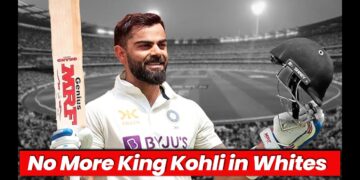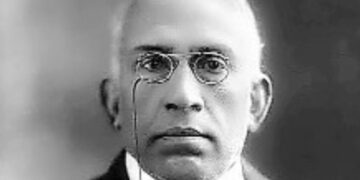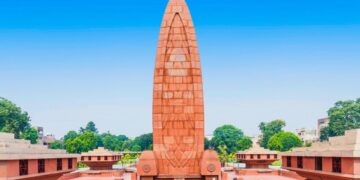PM Narendra Modi on Saturday announced the decision to award Bharat Ratna to the BJP veteran, Lal Krishna Advani. From shaping the Bharatiya Janata Party’s trajectory to pioneering significant movements such as the Ram Janmbhoomi movement conferring BJP stalwart Lal Krishna Advani with the highest civilian award, Bharat Ratna, serves as a tribute to his multifaceted political career. For this acknowledgment, a thankful Advani expressed his gratitude to President Droupadi Murmu and Prime Minister Narendra Modi for bestowing him with the prestigious, Bharat Ratna.
An Architect Behind BJP
While Lal Krishna Advani is often credited for taking the BJP from just two Parliamentary seats in 1984 to transforming the party to a level that released Bharat from the clutches of Congress by forming a government, he rose to become Deputy PM under Vajpayee from June 2002 to May 2004, however, he later steered BJP as the party president from 2004 after losing general elections.
Both Advani and Vajpayee were close associates for seven decades and nurtured the Bharatiya Jana Sangh and its successor Bharatiya Janata Party into the strong force that it is today. While Vajpayee was behind the BJP’s acceptance among the masses, Advani was the one who built the party by inducting the leaders with extreme potential.
Post-2002 Godhra Riots, Advani, the then Home Minister opposed Prime Minister Atal Bihari Vajpayee’s decision to dismiss Narendra Modi as the Chief Minister. Advani had threatened to resign from the Cabinet on the issue, forcing Vajpayee to withhold his decision. Advani’s leadership was characterized by his ability to articulate and popularize the party’s core principles, particularly its commitment to Hindutva, nationalism, and cultural revivalism. He effectively communicated these ideas to a broad audience, galvanizing support from both urban and rural constituencies.
Man Who Stirred Ram Janmbhoomi Movement
When discussing the BJP veteran Advani, it is inevitable to recount his integral role in the Ram Janmbhoomi movement, an epochal event in Bharat’s history.
The grand Pran Pratishtha ceremony of the Ayodhya Ram temple took place on 22nd January 2024 and was led by Prime Minister Narendra Modi along with RSS Chief Mohan Bhagwat and several other dignitaries. However, this momentous occasion would not have been possible without the efforts made by Advani. The Ayodhya movement captured the attention of the entire nation following the decision by the Rajiv Gandhi administration to unlock the Babri Masjid for prayers. This action led to the foundation stone ceremony of the Ram temple being held on November 9, 1989.
LK Advani emerged as a central figure in advocating for the construction of the Ram Temple at Ayodhya, where the Babri Masjid had stood for generations after being built by Mir Baqi, upon the instructions of the Mughal emperor Babur.
Advani’s leadership was epitomized by the historic Rath Yatra from Somnath to Ayodhya, commencing on September 25, 1990, marking a pivotal moment in the movement’s trajectory.
During and after the Rath Yatra, Advani conveyed the idea that although Lord Ram is deeply significant to Hindus, he is also esteemed by individuals of all religious backgrounds in India, symbolizing our shared national heritage and unity. The yatra sought to amplify the call for the construction of the grand temple. On one hand, Advani appealed to the Muslim community to voluntarily give up its claim on the disputed site by emphasizing the importance of honoring Hindu religious sentiments. On the other hand, he even offered to persuade the Hindu community to give up its claim on the disputed sites in Kashi and Mathura, if Muslim leaders did so in Ayodhya.
He also stepped up pressure on Rajiv Gandhi over his mishandling of Sri Lanka and Kashmir, as well as the Bofors scandal, and the BJP quickly emerged as a potent political force through this journey. Advani’s Rath Yatra was halted in Bihar as he was detained in Samastipur under the directives of the then Lalu Prasad administration. His arrest sparked extensive demonstrations nationwide. This event intensified public backing for the Ram Janmbhoomi movement, bolstering support for the BJP and cementing its status as a prominent political entity.
Even with Advani’s detainment, the Rath Yatra persisted under numerous BJP leaders, sustaining its energy and attracting considerable public interest. The events surrounding Advani’s arrest and the subsequent fallout ultimately contributed to the BJP’s electoral success in the 1991 elections, where it emerged as the second-largest party in Parliament after the Congress.
Despite this, the Rath Yatra marked a significant victory for Advani and the BJP. In the 1991 elections, the BJP emerged as Parliament’s second-largest party, trailing only behind the Congress, which secured 244 seats.
Bravely Resisting Emergency
The finest hour of Advani’s life was when he courageously resisted the Emergency declared by Indira Gandhi’s government. The period of Emergency (1975-77) still stands as a grim chapter in the history of the Bharatiya democracy.
Advani spent 19 months in jail, demonstrating remarkable bravery in his opposition to authoritarian rule. His defiance served as a beacon of inspiration amidst the struggle for democratic principles.
But what makes Advani relevant every time the Emergency is recalled, is something he said to the media fraternity after democracy was resurrected. He reapproached journalists with words, “You were asked only to bend, but you crawled”. In fact, during his tenure as the Information and Broadcasting Minister in Morarji Desai’s administration, Advani played a pivotal role in dismantling the structures of the Emergency era and curbs on press freedom.
After the end of the emergency period and the subsequent defeat of the Congress party in elections, the Janata Party assumed power at the national level. An elated Advani emphasized the necessity of transitioning Bharat’s political landscape from a singular dominance of Congress to a more balanced, “two-pole” system.
LK Advani’s journey from Karachi to the forefront of Bharatiya politics is thus marked by resilience and dedication, exemplifying his commitment to national unity and democratic principles. Advani’s legacy, underscored by his pivotal role during the Emergency period and his advocacy for a more balanced political landscape, cements his status as a statesman of enduring significance in Bharat’s history.
With LK Advani’s name on the list, the number of recipients who have received the prestigious Bharat Ratna rises to 50, with 17 posthumously. Some of the prominent personalities who have received the award which was instituted in 1954 include Karpoori Thakur, Former Bihar CM; Pranab Mukherjee, former President of Bharat; Madan Mohan Malaviya, a scholar and educational reformer; Atal Bihari Vajpayee, former President of Bharat; Amartya Sen, economist; and A.P.J. Abdul Kalam, Defense Scientist and Former President of Bharat.
















Comments